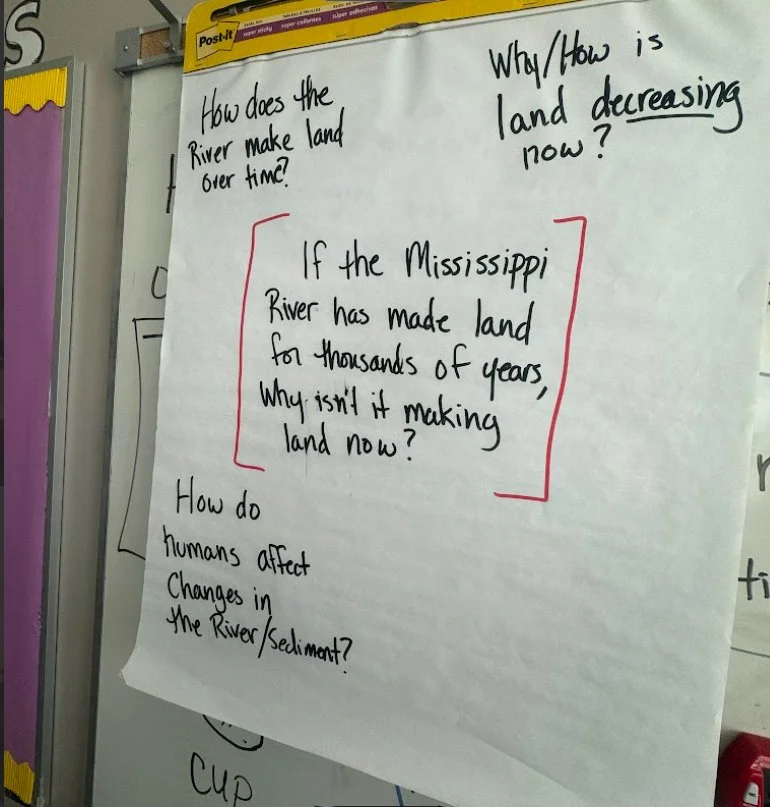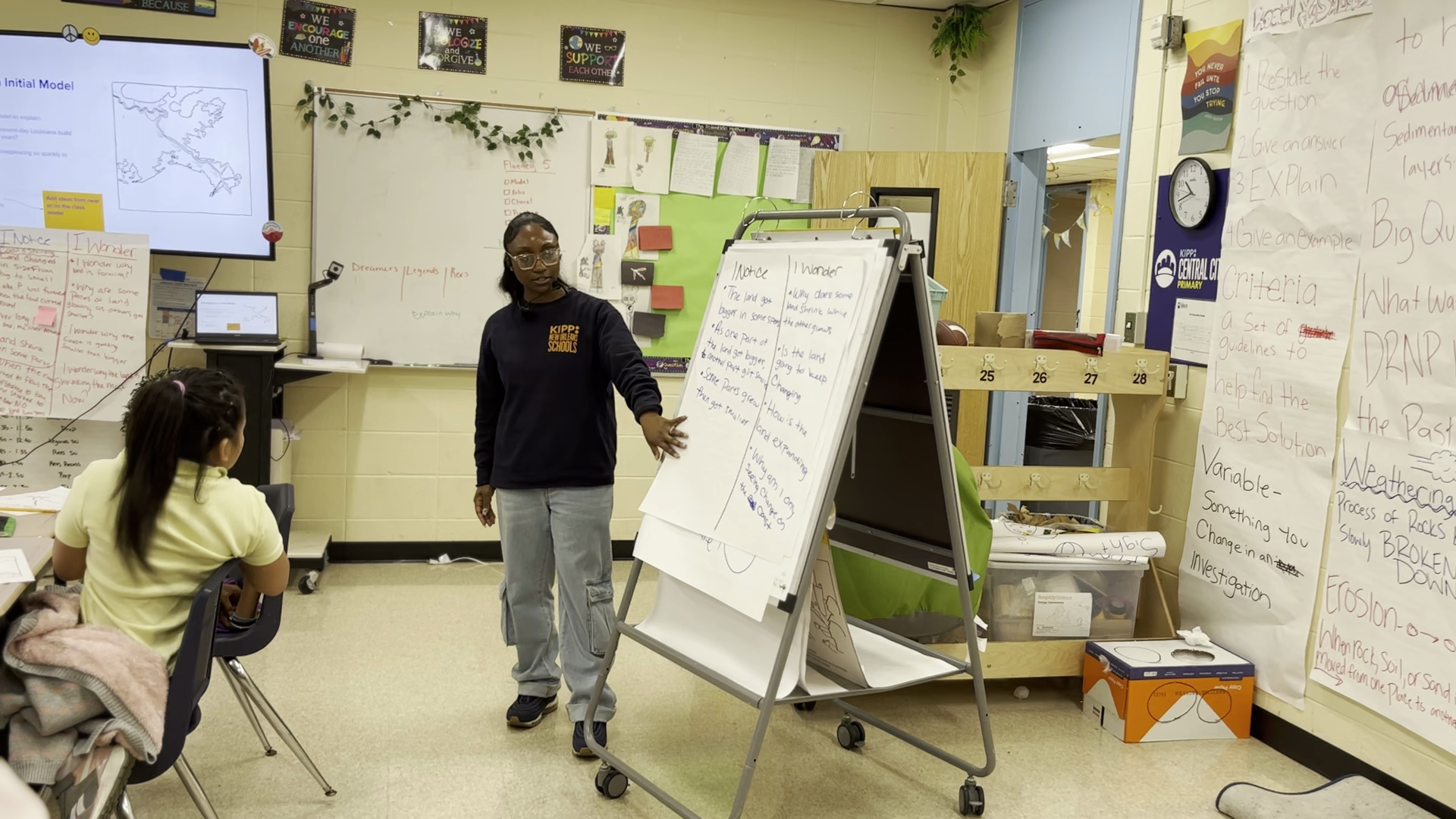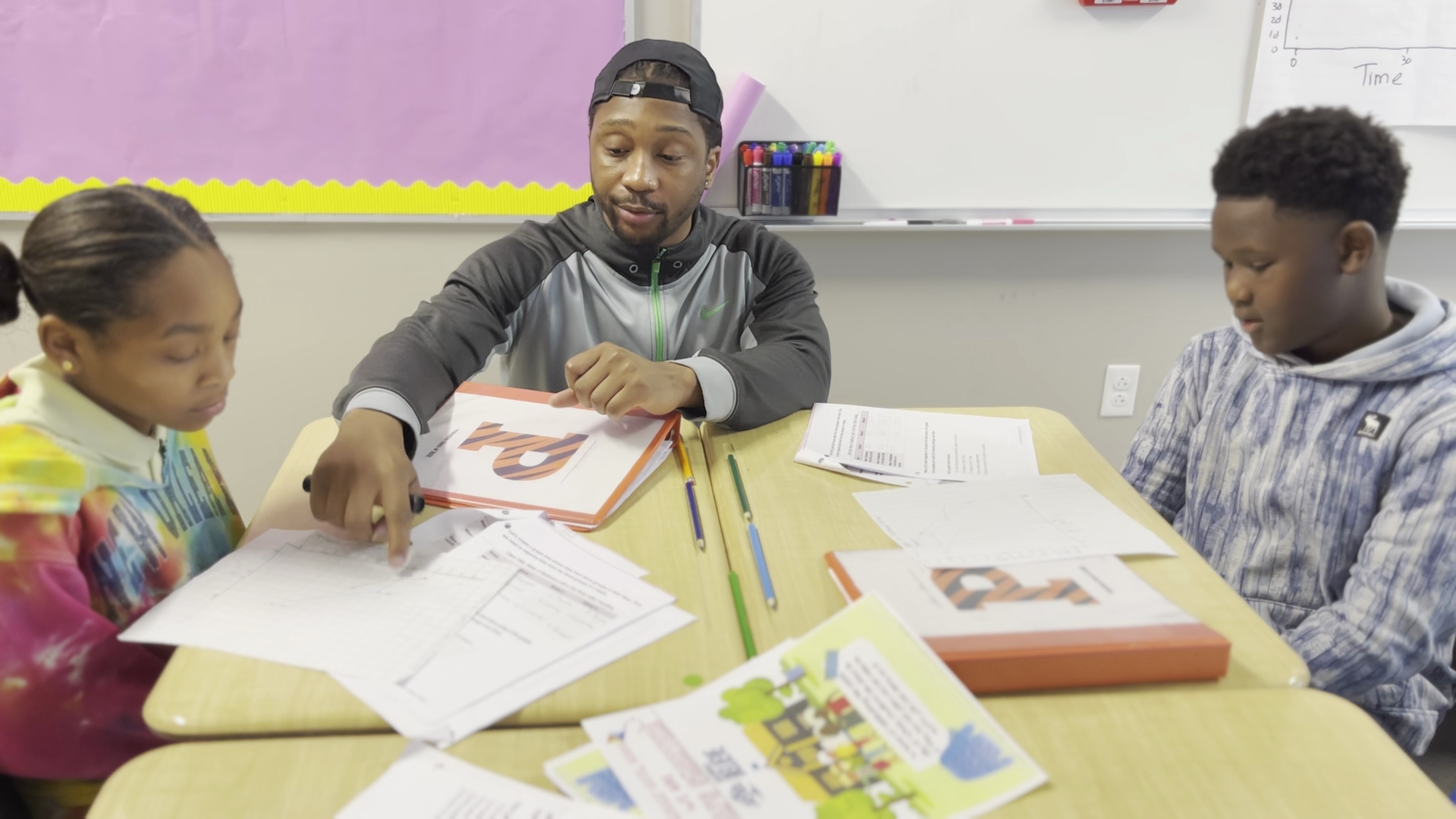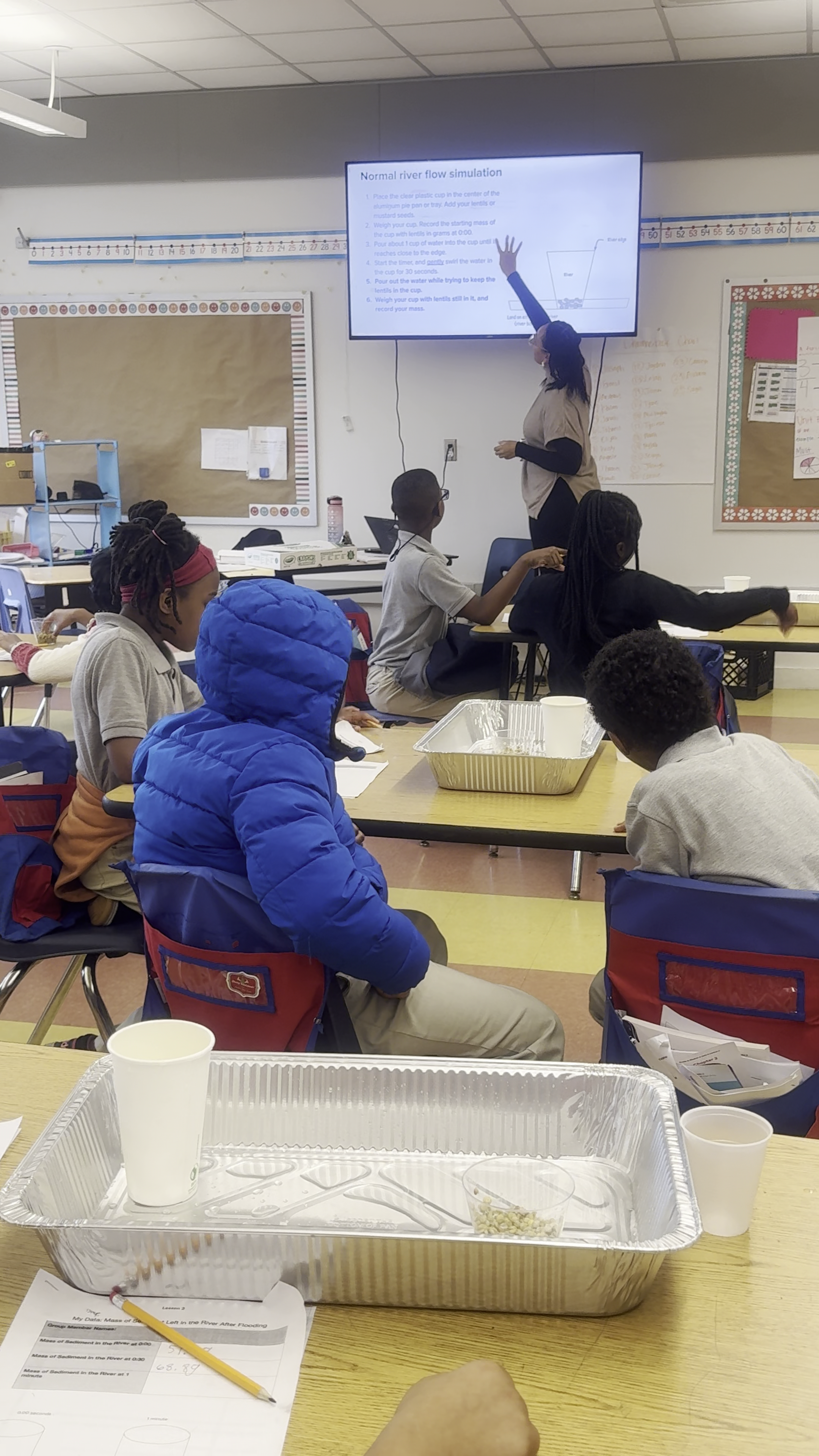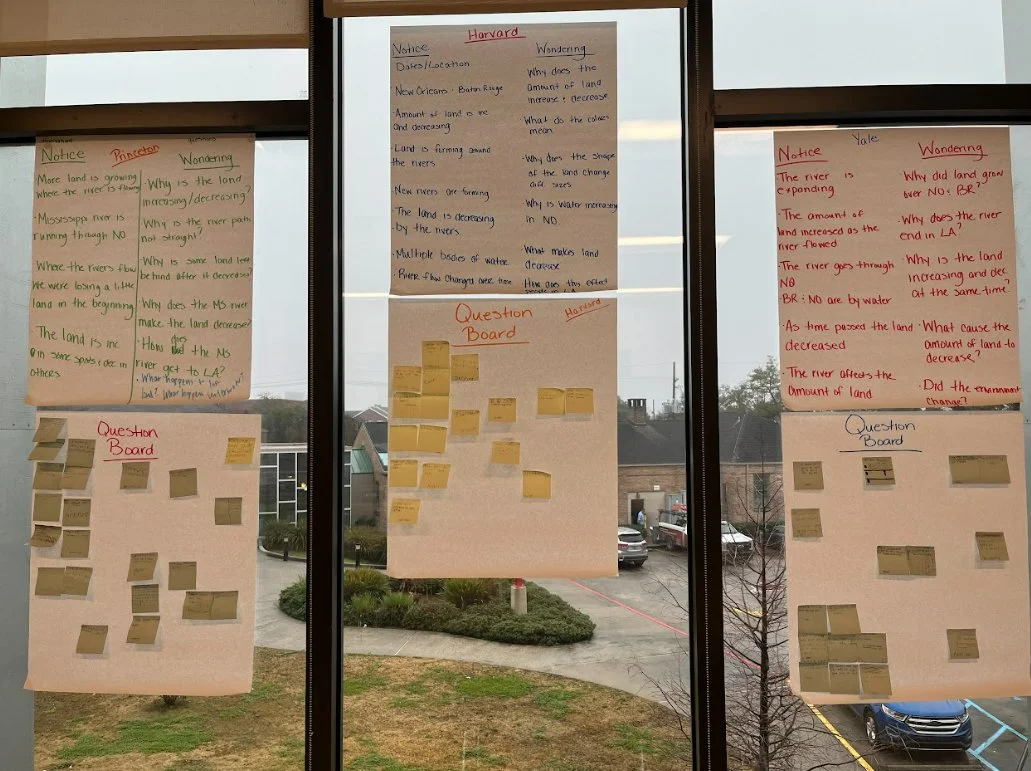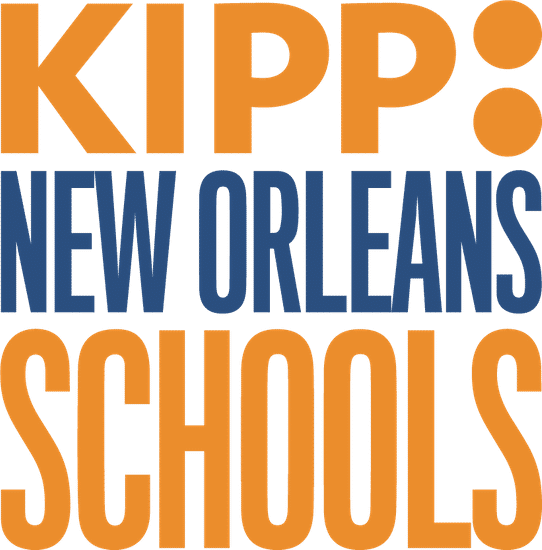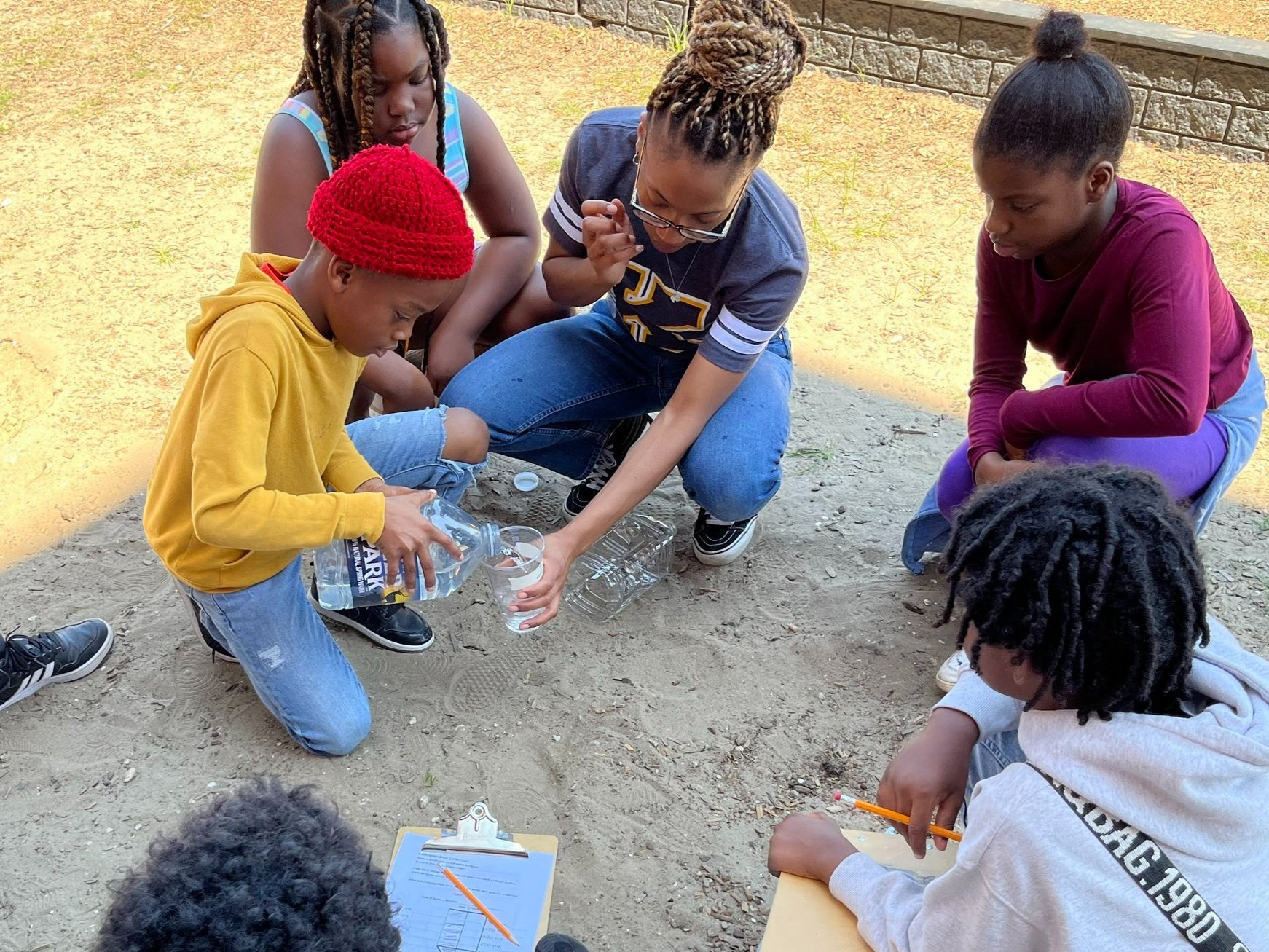Reenvisioning Primary Science Education KIPP New Orleans
Reenvisioning Primary Science Education KIPP New Orleans
Catalyzing district-wide standards-based science instruction through water literacy
2021 – current
Ripple Effect Fellow Mr. Busbee introducing students to an investigation into river flooding using water and sand
Project Description
Over the past three years, Ripple Effect and KIPP New Orleans have worked together to re-envision 3rd and 4th grade science instruction, with the ultimate goal of providing daily science instruction that prepares students for a lifetime of climate-related challenges.
Our work together is guided by this vision:
On any given day, in any given primary school classroom:
students are engaged in authentic inquiry and independent sense-making about culturally and locally relevant anchoring phenomena.
teachers are using research-based best practices to elicit student ideas about science issues and processes, and are effectively leveraging those ideas to help students build toward increasingly sophisticated science explanations.
school-based and regional instructional leaders have the tools and information they need to describe and measure how all levels of the organization—from students and teachers to KNOS regional leaders—will embody and pursue the long-term vision for excellence in science instruction.
Together, we have designed and implemented a series of interventions, including (1) special curricular “mini-units” (10-15 lessons) about locally relevant water issues that prioritize student sensemaking and agency while addressing Louisiana-specific science performance expectations, (2) region-wide professional development days led by Ripple Effect where teachers and coaches work together to learn and practice inquiry-based instructional routines, (3) live classroom coaching for teachers by Ripple Effect staff, including modeling lessons and routines, and (4) new assessment tasks that evaluate the impact of mini-units on student capacities to engage specific SEP’s (Planning and Conducting investigations and Analyzing and Interpreting Data).
Why this matters:
Achieving the transformational change we envision requires the cooperation and collaboration of multiple layers of educational systems, including teachers and school-based and district-level administrators, who must work together over years to shift the underlying mindsets and everyday teaching practices of their science programs. Without broad support and a shared commitment to realizing this vision throughout K-12 systems, the speed with which communities must adapt to climate-related issues will continue to outpace the rate at which educational systems can respond to these changes.
Through this project, Ripple Effect is exploring what it takes to build schools’ internal capacity to sustain—and continually improve—their water and climate literacy instruction. This includes attending to all parts of a teacher’s experience across an entire school year, from the selection and implementation of a core curriculum, to administrator support for teaching, to assessment design and professional development.
Project Partners
Related Projects
Bringing elementary school teachers and students into the field
Continue exploring our vision for water literacy education in the areas of teacher learning, curriculum design, and field-based learning.
Want to stay in the loop on water literacy?
Sign up for our newsletter to receive quarterly updates.


